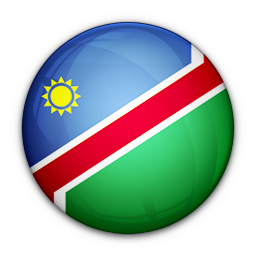
Namibia
Regional group:African Group (AG)
Council member:
|
|
|||||||||||||||
| National Mechanisms for Implementation, Reporting, and Follow-up (NMIRF): Standing - Inter-Ministerial | ||||||||||||||||

|
|
|||||||||||||||
| National Mechanisms for Implementation, Reporting, and Follow-up (NMIRF): Standing - Inter-Ministerial | ||||||||||||||||
The central role of the State in responding to pandemics and other health emergencies, and the socioeconomic consequences thereof in advancing sustainable development and the realization of all human rights; Adequate housing as a component of the right to an adequate standard of living and the right to non-discrimination in this context; Protection of the family; Promoting and protecting the human rights of women and girls in conflict and post-conflict situations on the occasion of the twentieth anniversary of Security Council resolution 1325 (2000); Freedom of opinion and expression; The right to social security.
During HRC general discussions, panel debates and interactive dialogues with the Special Procedures, during the past three years, either as an HRC member or not, the State has joined:
Regional
group statements
Subregional
group statements
Political group
statements
Cross-regional
group statements
Other joint
statements
Overall, as a HRC member, has participated in more than 10% of panel discussions, general debates and interactive dialogues.
 Cooperation with international human rights system
Cooperation with international human rights systemLongest visit request not (yet) accepted by the State >
SR on toxic waste, 2015
CAT
ICCPR
CED
CEDAW
CERD
ICESCR
CRC
CRPD
 Most overdue report
Most overdue report
Ratified
NPM established
 Fulfilment of past voluntary pledges & commitments
Fulfilment of past voluntary pledges & commitments Namibia tabled voluntary pledges and commitments in support for its candidacy for membership for the period 2014-2016 on 11 October 2013. Namibia made a number of concrete pledges and commitments at both international and national levels.
At international level, Namibia pledged to: participate actively in the UPR process; promote the mainstreaming of human rights; support initiatives designed to combat maternal and infant malnutrition; and cooperate fully with the mechanisms of the Council, including the Special Procedures, by promptly responding to communications and facilitating requests for country visits.
Domestically, Namibia made commitments to provide human rights education and training; as well as to implement the recommendations arising from the UPR.
An analysis of steps taken by Namibia in fulfilment of its international level pledges shows that Namibia participated in only 12% of interactive dialogues, 12% of general debates and 32% of panel discussions. Namibia has accepted more than half of Special Procedures visit requests, but has not responded the communications received. Namibia is Party to most of the core human rights conventions, but tends to submit its periodic reports late (its report to the Human Rights Committee is over six years late). It participated in the UPR process at ministerial level, and tabled a mid-term report on implementation.